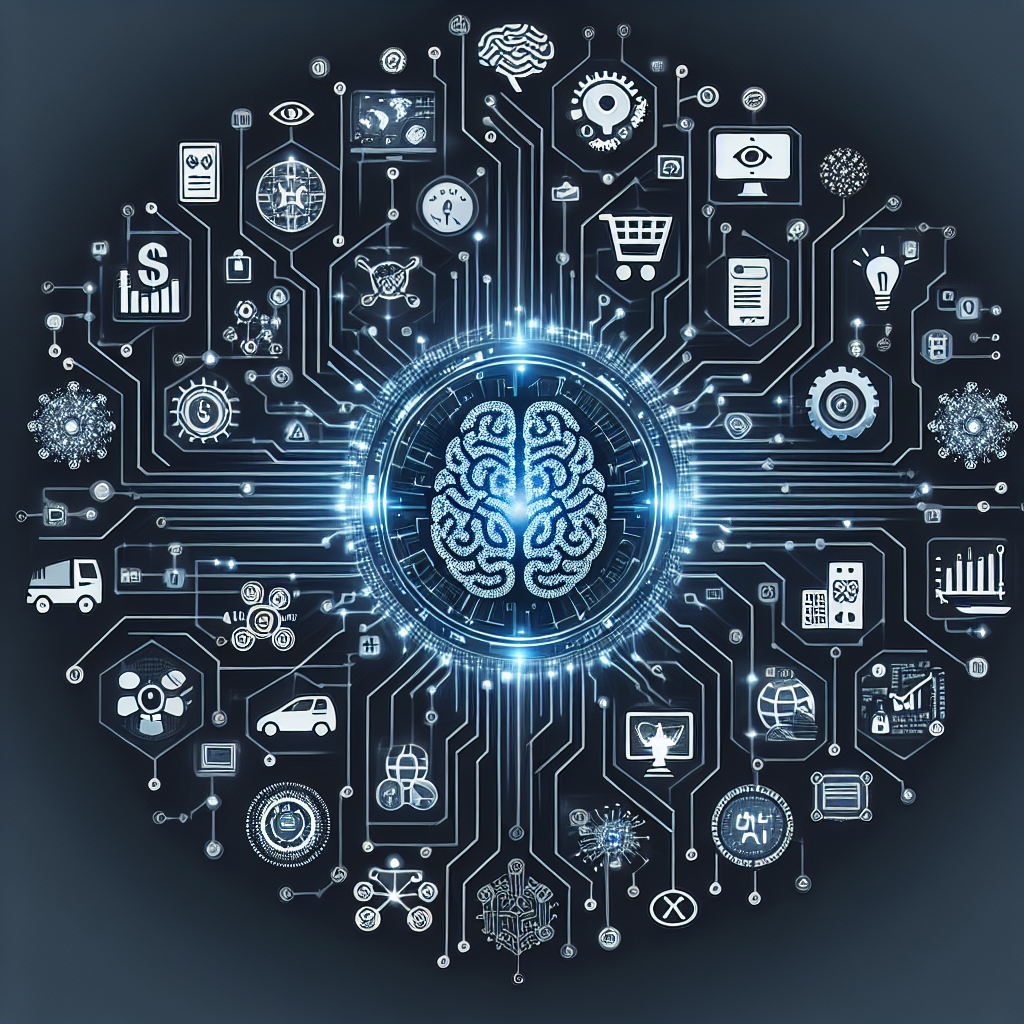Artificial Intelligence (AI) has been transforming industries across the globe in recent years, revolutionizing the way businesses operate and making processes more efficient and effective. One of the key drivers of this transformation is AI democratization, a concept that refers to the accessibility of AI tools and technologies to a wider audience, beyond just tech giants and those with specialized knowledge in the field. As AI becomes more democratized, businesses of all sizes and industries are able to leverage its power to drive innovation and growth.
AI democratization is changing the way industries operate in several key ways. First and foremost, it is enabling businesses to make data-driven decisions in real-time. By providing access to AI tools that can analyze vast amounts of data quickly and accurately, businesses are able to gain valuable insights into their operations, customer behavior, and market trends. This allows them to make informed decisions that drive growth and competitive advantage.
Another way AI democratization is transforming industries is through automation. AI-powered tools can automate repetitive tasks, freeing up employees to focus on more strategic and creative work. This not only improves efficiency and productivity but also enhances job satisfaction and employee engagement. Industries such as manufacturing, healthcare, and finance are already seeing the benefits of AI-powered automation in streamlining processes and reducing costs.
AI democratization is also driving innovation in product development and customer service. By providing businesses with access to AI tools that can analyze customer feedback, preferences, and behavior, companies can develop more personalized products and services that better meet the needs of their customers. This leads to higher customer satisfaction and loyalty, as well as increased revenue and market share.
Furthermore, AI democratization is leveling the playing field for businesses of all sizes. Small and medium-sized enterprises (SMEs) are now able to access AI tools and technologies that were once only available to large corporations with significant resources. This allows SMEs to compete more effectively in the market, innovate faster, and drive growth without the need for massive investments in technology.
Overall, AI democratization is transforming industries in profound ways, driving innovation, efficiency, and growth across sectors. As more businesses embrace AI technologies and incorporate them into their operations, the impact of AI democratization will only continue to grow.
FAQs:
Q: What are some examples of industries that are being transformed by AI democratization?
A: Industries such as healthcare, finance, manufacturing, retail, and transportation are all seeing the benefits of AI democratization. Healthcare companies are using AI tools to analyze patient data and develop personalized treatment plans, while financial institutions are using AI to detect fraud and automate customer service. Manufacturers are leveraging AI-powered automation to streamline production processes, and retailers are using AI to analyze customer behavior and personalize marketing campaigns. Transportation companies are using AI to optimize routes and schedules, leading to cost savings and improved customer service.
Q: How can businesses benefit from AI democratization?
A: Businesses can benefit from AI democratization in several ways. By leveraging AI tools and technologies, businesses can make data-driven decisions in real-time, automate repetitive tasks, drive innovation in product development and customer service, and compete more effectively in the market. AI democratization also allows businesses to access cutting-edge technologies without the need for massive investments, leveling the playing field for companies of all sizes.
Q: What are some challenges to AI democratization?
A: While AI democratization offers many benefits to businesses, there are also challenges that need to be addressed. One key challenge is the lack of skilled AI talent in the workforce. As AI technologies become more widely accessible, there is a growing demand for professionals with expertise in AI development and implementation. Businesses need to invest in training and upskilling their employees to ensure they have the knowledge and skills needed to leverage AI effectively.
Another challenge is the ethical implications of AI democratization. As AI technologies become more widespread, there are concerns about privacy, bias, and accountability. Businesses need to ensure they are using AI tools responsibly and ethically, and comply with regulations and standards to protect data and ensure transparency in their AI-powered processes.
In conclusion, AI democratization is transforming industries in profound ways, driving innovation, efficiency, and growth across sectors. By providing businesses with access to AI tools and technologies, companies of all sizes and industries can leverage the power of AI to make data-driven decisions, automate processes, drive innovation, and compete more effectively in the market. As AI technologies continue to evolve and become more accessible, the impact of AI democratization will only continue to grow, shaping the future of business and industry.

